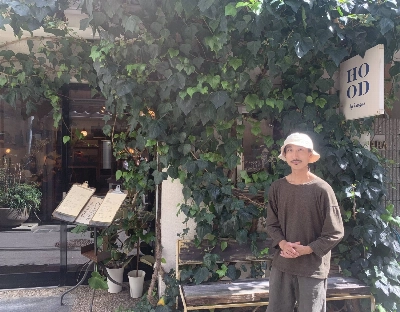On a recent showery Tuesday afternoon, about 15 people assembled in a shopping district near Waseda University in Shinjuku Ward, Tokyo. When the rain eased up, they armed themselves with working gloves, waste pickers and plastic bags. Then, together, they set off on their mission to clean up the neighborhood's streets.
That was on May 30, the occasion of the annual Gomi-zero (No rubbish) Day Clean Patrol that the Waseda Retailers Group has organized for the last four years as part of its "community revitalization" project.
The rain unfortunately kept away many potential participants, but the intrepid volunteers -- including elementary school children and Waseda students -- nonetheless scoured several blocks, ridding them of cans, bottles, scrap paper and untold cigarette butts. What was left after their scorched-earth patrol was rubbish-free sidewalks and alleys.
After the mission, the party was offered free bowls of udon noodles provided by residents of Sagamiko Town, Kanagawa Prefecture, who have had longstanding friendly exchanges with the Waseda group, and who came to Tokyo to support the event with their local specialty.
Finally, when all concerned seemed stuffed and happy, Risako Kubo, one of the event's organizers, thanked everyone and handed each some "Atom Currency" a community currency that locals around the university launched last year. The name derives from Osamu Tezuka's popular animation, "Tetsuwan Atom (Atom Boy)", as the area is the supposed birthplace of his robot hero, and Kubo explained that the currency would be accepted at many of the area's shops and restaurants through September.
Over the years, as new large shopping centers have proliferated around the land, shotengai have lost not only many customers but also their focus role for their communities. However, in an effort to stem this trend, and to restore more local communication and interaction, retailers and concerned citizens are increasingly launching activities that encourage neighborhood participation.
Another example, beside clean-up and recycling projects, is the growing movement toward introducing community currencies like Waseda's Atom Currency. Generally issued and circulated within a community, these currencies are a thank you reward for some service provided to another or others. They are usually accepted by local retailers who back the cause, and who will give discounts or other privileges in exchange. In these ways, the community currencies are effective not only in bringing people together, but also in stimulating local economies.
In the Waseda area, for instance, Atom Currency is playing a role in vibrant community revitalization projects. "Some people are shy about taking part in events for a good cause, but community currencies can serve as a tool to help encourage their participation," Kubo said.
In fact, though bad weather led to a low turnout this year, the same clean-up campaign last year -- when participants were, for the first time, rewarded with Atom Currency -- saw a doubling in their numbers from 30 to 75 from the previous year, Kubo said. "The currency," she explained, "gives its holders a chance to step into local stores, and then after that, how to make them regular customers is up to the efforts of each retailer."
However, as 47-year-old retailer Takashi Uchida learned the hard way, more understanding of the function of a community currency is necessary if shotengai are going to be revived through this initiative.
A household goods shop owner in the Nijodori Shotengai near Tsuruma Station in Yamato City, Kanagawa Prefecture, Uchida has for years been trying his best to revitalize the shotengai. One effort to involve the community has been a project to gather aluminum flip-tabs on cans that has now been running for four years. Through marketing the aluminum, the retailers' group have donated four wheelchairs to the city hospital, Uchida explained.
All you need is LOVES
So, when Yamato City launched a community currency called LOVES three years ago, Uchida said he was initially very excited. He studied its mechanism and eventually came up with the idea to link it with the flip-tab gathering campaign.
In the process, however, Uchida faced many difficulties getting local stores to cooperate, as some were slow to appreciate its benefits. He partly blames the city for not providing enough explanation of the LOVES mechanism it launched, in particular how citizens could in practice use the currency.
Nonetheless, Uchida is determined to build up the currency within his community. "I wanted to give it up so many times but I couldn't, because there was no way I could deny the ideals of a community currency," he said.
He added: "When I was a kid 40 years ago, this shotengai was a place where not only shoppers but many locals would just come for a walk, because this was the center where everything from commodities to information was gathered.
"I really want to get that back here again."



















With your current subscription plan you can comment on stories. However, before writing your first comment, please create a display name in the Profile section of your subscriber account page.